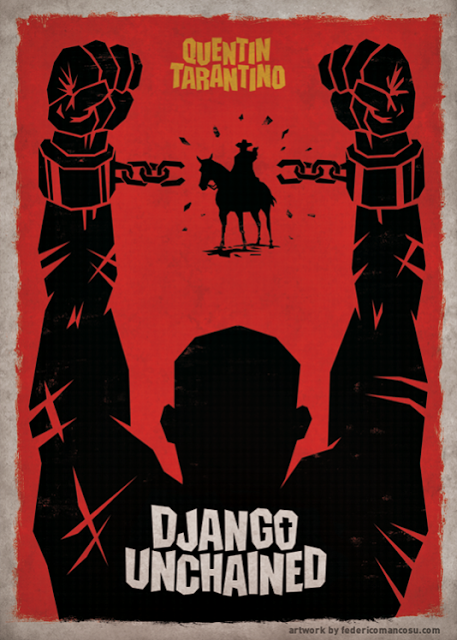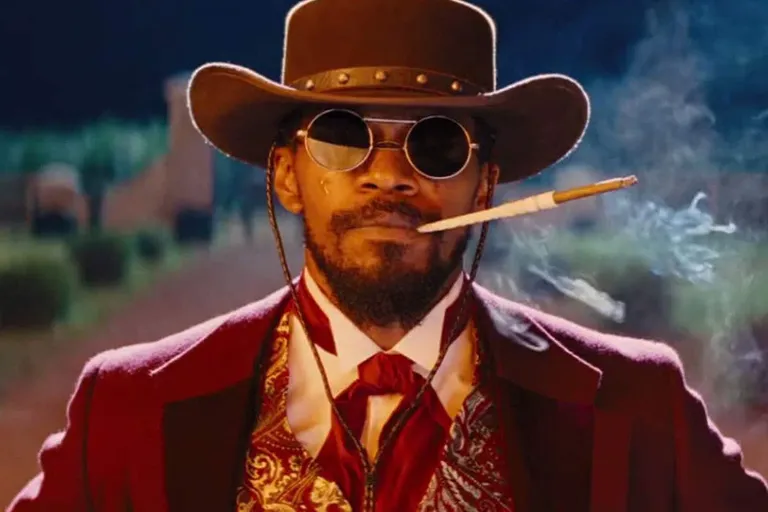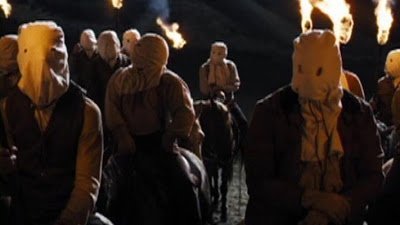Estrenada en 2012 "Django sin cadenas" dejo una huella profunda e la industria del cine y en la cultura popular. Dirigida por Quentin Tarantino, esta pelicula revisionista del género western se convirtió en un hito cinematográfico y género una serie de debates y reflexiones sobre la representación histórica y las narrativas de la esclavitud en le cine.

Uno de los principales legados de "Django sin cadenas" es su valiente representación de la vinolencia y la opresión de la época de la esclavitud en Estados Unidos. La película no elude mostrar la brutalidad y el sufrimiento que padecieron los esclavos africanos, desafiando así la tendencia a romantizar o minimizar este capitulo oscuro de la historia. Al hacerlo "Django sin cadenas" abrió un espacio para discutir la esclavitud de manera mas honesta y provocadora en la pantalla grande.
Además, la película también tuvo un impacto significativo en la presentación dé personajes negros en el cine. Al otorgar a Django, interpretado por Jamie Fox, un papel protagonista poderoso y complejo, "Django sin cadenas" desafió los estereotipos y ofreció un retrato empoderador de un héroe afroamericano. Esta representación positiva contribuyó a ampliar la diversidad y la representatividad en la industria cinematográfica y allanó el camino para futuras producciones con protagonistas negros.

El legado de "Django sin cadenas" también se puede apreciar en su influencia en películas posteriores y en la forma en que se abordan las narrativas históricas. La película de Tarantino abrió la puerta a un nuevo enfoque del género western, mezclando elementos clásicos con una mirada contemporánea y estilizada. Su estilo visual distintivo y su audaz narrativa han inspirado a directores y cineastas a explorar nuevas formas de contar historias y a desafiar convenciones establecidas.

Esta película no solo generó discusiones sobre la representación histórica y la esclavitud en el cine, sino que también allanó el camino para una mayor diversidad en la industria cinematográfica. Su impacto perdura hasta el día de hoy, recordándonos la importancia de abordar temas difíciles y desafiar las convenciones establecidas para promover una narrativa más inclusiva y auténtica en el cine.
English
Released in 2012 "Django Unchained " left a deep mark on the film industry and popular culture. Directed by Quentin Tarantino, this revisionist film of the western genre became a cinematic landmark and sparked a series of debates and reflections on the historical representation and narratives of slavery in cinema.

One of the main legacies of "Django Unchained " is its courageous depiction of the violence and oppression of the slavery era in the United States. The film does not shy away from showing the brutality and suffering endured by African slaves, thus defying the tendency to romanticize or minimize this dark chapter in history. In doing so "Django Unchained " opened a space to discuss slavery in a more honest and provocative way on the big screen.
In addition, the film also had a significant impact on the presentation of black characters in film. By giving Django, played by Jamie Fox, a powerful and complex lead role, "Django Unchained " challenged stereotypes and offered an empowering portrayal of an African-American hero. This positive portrayal helped to broaden diversity and representation in the film industry and paved the way for future productions with black protagonists.

The legacy of "Django Unchained " can also be seen in its influence on subsequent films and the way historical narratives are approached. Tarantino's film opened the door to a new approach to the western genre, blending classic elements with a contemporary and stylized look. Its distinctive visual style and bold storytelling have inspired directors and filmmakers to explore new forms of storytelling and challenge established conventions.

This film not only sparked discussions about historical representation and slavery in film, but also paved the way for greater diversity in the film industry. Its impact endures to this day, reminding us of the importance of tackling difficult subjects and challenging established conventions to promote more inclusive and authentic storytelling in film.
Translated with www.DeepL.com/Translator